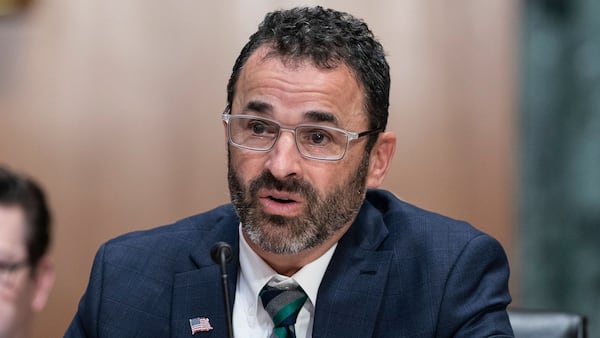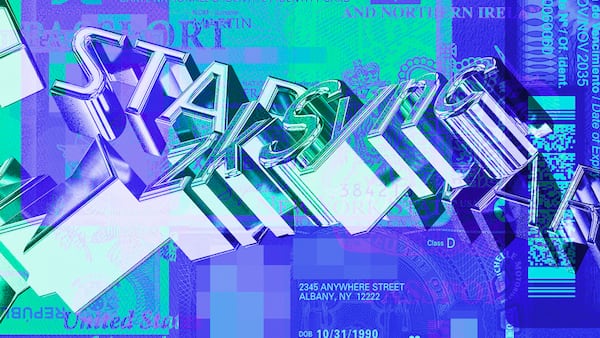- The Treasury wants more power to stop terrorists using crypto to fund their campaigns.
- Industry representatives have hit back at what they deem as an ill-conceived “power grab.”
- The Treasury’s latest play is part of a wider US crypto crackdown that has already scored it a huge win against Binance.
The US Treasury is emerging as a notable crypto foe after notching a win with the $4.3 billion settlement against crypto exchange Binance last month.
The agency that has been active but less vocal than its markets watchdog counterpart, the Securities and Exchange Commission, is revving up for more.
The Treasury — notable for its pursuit of crypto mixers like Tornado Cash and Sinbad — has seized on Hamas’ attacks on Israel in October to call for new tools to combat illicit terror financing.
In a memo last week, the agency asked the Senate Banking committee to strengthen federal laws to prevent terror organisations from accessing crypto, saying it needed new powers to broaden those it already has over US banks’ foreign banking partners.
Arguments citing crypto’s role in terrorism funding has drawn howls of protest from the industry, with many countering that data supporting the claims is sparse, misinterpreted, or exaggerated.
Still, the Treasury’s play is part of a wider US crypto crackdown, which has gained momentum after several high-profile scandals.
The Treasury is leveraging terror financing — “a rounding error” in total militant group funding — to stifle the crypto sector, Austin Campbell, founder and managing partner of Zero Knowledge Consulting, told DL News.
“This is the same story as the Patriot Act,” he said. He was referring to the George W. Bush-era laws that gave the US government sweeping surveillance powers that some say infringe on citizens’ constitutional rights to privacy and other civil liberties.
I have in my grubby little paws the latest proposal, dated from today, that Treasury has sent to the Senate Banking committee, and boy, do I have thoughts.
— Austin Campbell (@CampbellJAustin) November 29, 2023
To summarize for the crowd, Treasury is asking for an unprecedented level of expansion of their powers in order to combat…
“They’re using a crisis to try to go for a massive expansion of powers that’s 50 times what the crisis merits.”
Campbell is also an adjunct professor at Columbia business school, and has a background in banking.
The Treasury has more than Binance under its belt.
Its Financial Crimes Enforcement Network proposed in October to define crypto mixers as a money laundering risk, which would force US banks to limit their interactions with these businesses.
The Treasury’s new ‘power grab’
Campbell has come out as a vocal critic against the move, labelling the requests in a much-shared post on X as “completely insane.”
The updated definitions the agency wants would require DeFi projects, wallet providers, and validator nodes to do the same kind of know-your-customer and anti-money laundering work as banks — collecting and reporting customers’ personal information, for instance,
By definition, none of these projects could comply with such measures, Campbell told DL News.
“These platforms can’t enforce KYC/AML controls because they don’t have direct user-like relationships,” Campbell said.
The request is a “massive power grab in terms of what the Treasury wants to have the ability to regulate,” he added.
Invoking 9/11
“These reforms will not only help us curb illicit finances, they will also level the playing field for the actors pursuing responsible and beneficial innovation, and facilitate sustainable growth for the industry,” Treasury deputy secretary Wally Adeyemo said in prepared remarks at a summit organised by the Blockchain Association.
Adeyemo said regulatory measures need reform to keep pace with new technology.
“The last time we pursued major reforms to this architecture was after the terrorist attacks on 9/11,” he told the summit.
“The threat actors and tools at their disposal have changed, but their goals remain the same. As terrorists and criminals innovate their approach to illicit finance, we need tools to be able to keep up with them.”
Just a wish list
To be clear, the Treasury’s request is just a wish list. Lawmakers don’t have to act on it, and indeed, Campbell said, they probably won’t.
“What do I actually expect to happen off the back of this? Nothing,” Campbell said.
The Banking committee contains some powerful crypto foes, including the influential progressive Senator Elizabeth Warren.
Warren’s anti-crypto stance has made her a bogeyman to the industry as she has marshalled both left- and right-wing allies — such as Republican Senator Roger Marshall — to her cause under the rallying call of national security.
In October, Warren and Marshall led 102 Senators in a letter to Treasury’s national security officials expressing concern about the role of crypto in terror financing.
But the committee also boasts the likes of Republican senator Cynthia Lummis, who has backed a comprehensive pro-crypto law.
“The reality is that whatever fight happens in the Senate, there’s probably not a majority for any position,” Campbell said. “And even if there were, the House [of Representatives] is not going to take up this sort of thing.”
But, he said, the request could alert lawmakers to what he called the Treasury’s attempted overreach.
“There are some people in Senate Banking who will react to this as a blatant power grab by the Treasury, and have some deep concerns about giving it this level of power,” he said.
Campbell also warned that ill-considered crackdowns could stifle innovation of blockchain, which he views as a transformative technology.
Regulators have ‘conflated actors with the technology, so they’re throwing the baby out with the bathwater.’
Regulators have “conflated actors with the technology, so they’re throwing the baby out with the bathwater,” he said.
“This is a bit like at the turn of the century, when the automobile was invented. It’s like if there was an automobile accident that killed a bunch of people, and rather than say, ‘We need rules restricting the use of automobiles in safe ways’, we say, ‘Fuck it, back to horses.’”
“There are massive structural improvements that could help with the problems that the Treasury is legitimately concerned about, but they’re doing things that are actively counterproductive to achieving them.”
The Treasury did not respond to a request for comment.
Reach out to the author at joanna@dlnews.com.









